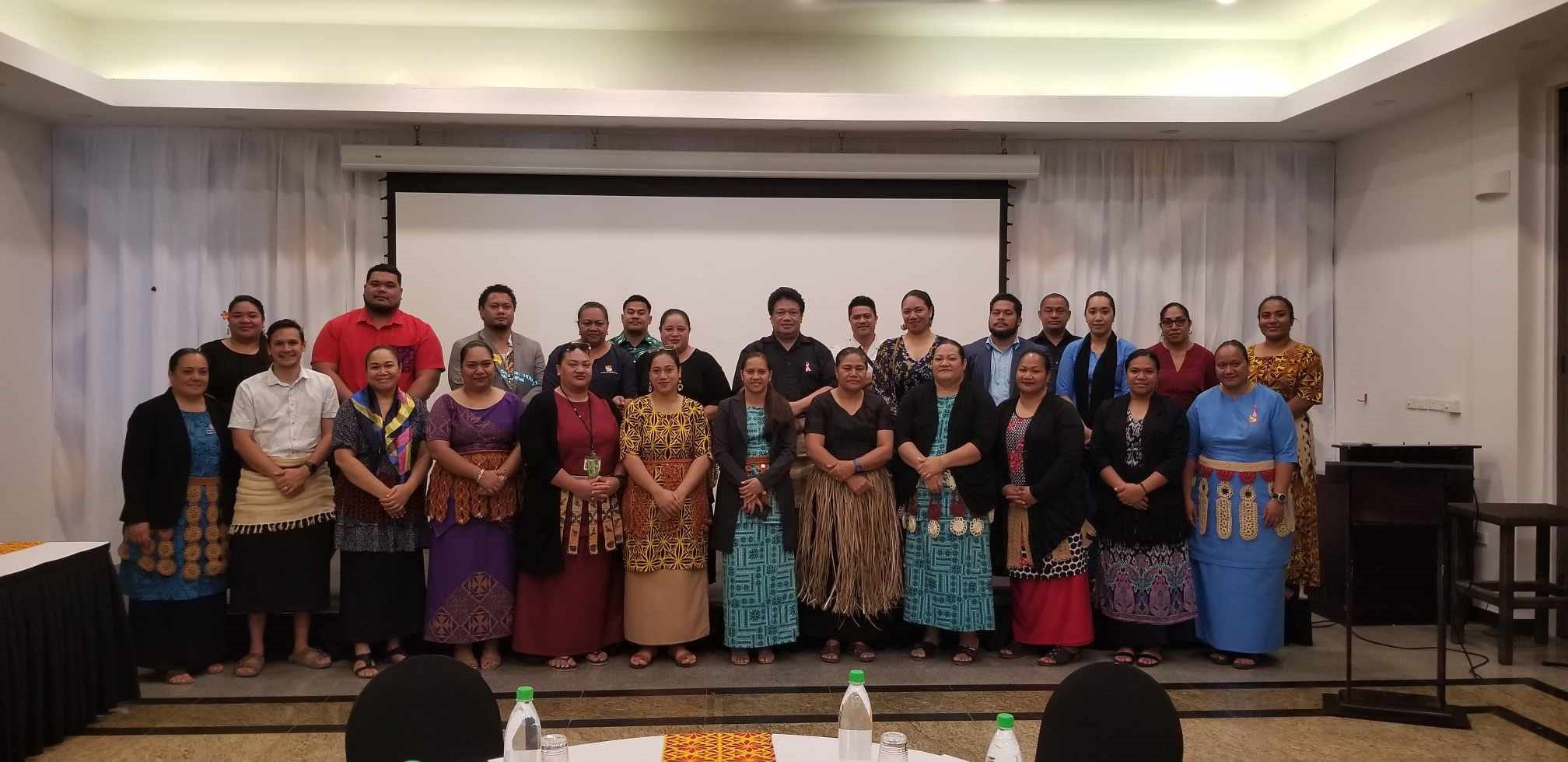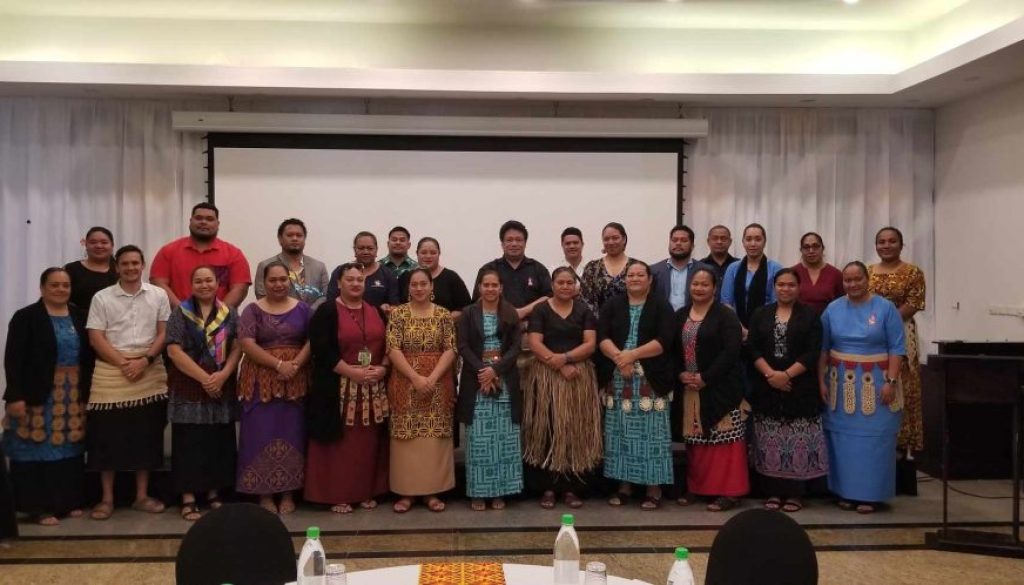Tonga JNAP Monitoring and Evaluation Capacity Building Workshop

In a significant stride towards a resilient future for Tonga, a capacity building workshop on Monitoring and Evaluation was held on Wednesday 19 October at Tanoa Hotel. The JNAP Secretariat from the Department of Climate Change facilitated the workshop alongside the National Planning Division of the Prime Minister’s Office. The workshop aimed at bolstering the Monitoring and Evaluation System for Tonga’s second Joint National Action Plan on Climate Change and Disaster Risk Management (JNAP 2, 2018-2028).
JNAP 2 serves as the sector plan for Climate Change in the Ministry of MEIDECC, and it also serves as Tonga’s National Adaptation Plan (NAP) to the United Nations Framework Convention on Climate Change (UNFCCC), making it the backbone in the country’s response to climate change and disaster risk management.
The workshop’s highlight was the presentation of key findings from the first JNAP 2 Monitoring and Evaluation (M&E) progress report completed in 2021. This report was meticulously compiled using data collected through the JNAP Monitoring and Evaluation System. It provided valuable insights into the progress and status of JNAP 2 activities.
The workshop targeted the M&E focal points and ministries of 10 line ministries. They engaged in constructive discussions, focusing on how JNAP activities can be seamlessly integrated into the corporate plans of ministries. Moreover, participants delved into the specifics of activity progress, implementation stages, and the capacity needs addressed by the various ministries.
A milestone deserving special recognition, Tonga’s JNAP 2 has become the first ministry sector plan to merge with the corporate plan monitoring and evaluation system used by the National Planning Division for line ministries across the entire government. This achievement represents a monumental step forward in Tonga’s efforts to integrate climate change and disaster risk management.
This success is the result of four years of dedicated patience and on-going efforts. It showcases the perseverance and collaboration of Tonga’s public, NGO and private sector in building a more sustainable and resilient future for the nation. Ms Ma’ata Mafi from the National Planning Division commented at the workshop, “One of our objectives in National Planning is knowledge exchange between ministries. It was good to finally see the data we have collected turned into solid information. I believe these are very useful insights to the ministries, especially when addressing their capacity needs.” The workshop was a vital step on demonstrating that the collaborative spirit and shared vision of the different government ministries can lead to significant accomplishments.
In Tonga, where the people’s connection to the environment is intrinsic, this workshop signifies a common goal to protect their beautiful islands that is highly vulnerable to the impacts of climate change. It is a testament to their commitment to tackling climate change and managing disaster risks. Looking ahead to a more positive impact from the insights and strategies from this workshop, the Department of Climate Change and National Planning continue their ongoing monitoring and evaluation of data through collaboration with the government ministries of Tonga and stakeholders to building a resilient Tonga to the impacts of climate change.

